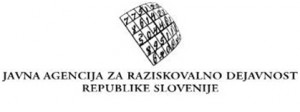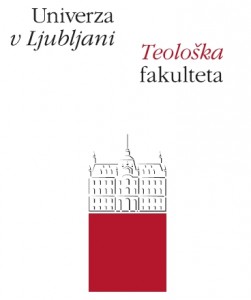Slovenian Intellectual History in the Light of Contemporary Theories of Religion: From Separation of Spirists and Culture War to Communist Revolution
basic research project supported by Slovenian Research Agency
Description
Regarding the period covered by the project, the focus is on the period from the second half of the 19th century or “Mahnič’s” separation of spirits until the beginning of the communist revolution during World War II. This does not mean that we do not go beyond this timeframe, both in the direction of the preceding time and the period after that. This is not even possible. However, the main focus is on this period. The project applies contemporary theories of religion, especially those that are useful in terms of secularization, modernization, violence, understanding of culture, culture war (Ger. Kulturkampf), and ideological conflict. It is worth mentioning, among other authors of such theories, Charles Taylor, René Girard, Jan Assmann, as well as the Russian philosophical and theological thinkers. An important segment of our research touches the violence and culture war. The next inevitable topic is the question of truth and authority (revelation and the Church), including their phenomenological, hermeneutical, and ideological or social aspects (application of the first two to the last two). This problem is closely related to the problem of nihilism brought to the Slovene space by freethought, which penetrated into it from abroad. From the point of view of nihilism, we shed light on the spiritual crisis of the Slovene freethought, communism, as well as the crisis of traditional Catholicism, from which the situation increasingly required new answers in line with the signs of the times. An important part of our project is exploring the collision between freethought and the traditional (conservative) or radical Catholicism. The next line of research is to shed light on the dynamics of building of the Slovene nation schematically captured by the “people-nationstate-nation” triad. We highlight the tension caused by the formation of the Slovene nation on one hand and the ideology of populism (Ger. Volktümlichkeit) used by both the Catholic and Communist sides on the other. In this way, we shed light on the ideological conflict introduced into Slovene space by freethought, modernization and secularization. These factors resulted in the separation of spirits (declared by the Catholic priest and leading ideologist of Slovene radical Catholicism Anton Mahnič (1850-1920)). The ideological clash culminated in the course of World War II with the communist revolution and the clash between Catholics and Communists. The project thus has two levels, which we connect as organically as possible: a more general theoretical level, and a specific Slovene “story” which research gives the project empirical content. In this way, we achieve two things: on the one hand, the project tests with an application the general established theories of religion and culture, and on the other, we shed light on the Slovenian intellectual history in a way that has not been systematically done so far in an interdisciplinary and harmonized research project. We also explore the subject in a comparative way (Slovakia, Hungary, Croatia, Poland, Austria …). Therefore, we attract competent researchers from these countries. The project is a novelty on the global scale, as no one has systematically done anything similar in a systematic way. The project is important from the point of view of national and European interest, since understanding of ideological conflicts in the past is also crucial for understanding such frictions and conflicts in the present, and last but not least for resolving them. The project is not only relevant to the area of theology, religion, history and cultural studies, but also to other fields of humanities and social sciences. The project undoubtedly has both cultural heritage dimension, and European importance.
Significance for science
The project applies contemporary theories of religion, especially those that are useful in terms of secularization, modernization, violence, understanding of culture, culture war (Ger. Kulturkampf), and ideological conflict. It is worth mentioning, among other authors of such theories, Charles Taylor, René Girard, and Jan Assmann. Thus, on the one hand, the project tests the general established theories of religion and culture, and on the other, we shed light on the Slovenian intellectual history in a way that has not been systematically done so far in an interdisciplinary and harmonized research project. The project is a novelty on the global scale, as no one has done anything similar in a systematic way. It presents less known aspects of the transition of Slovenes to the new state framework after the WWI and its consequences for the Catholic camp. We answer to the question when the adherence to the Catholic Church, which was taken for granted for the vast majority of Slovenes for century, began to diminish and on what grounds. Of crucial importance for us is also currently only partially accomplished comparison of the Slovenian »schism of spirits« to the European, particularly Central European context. The project places the Slovene historical experience within wider and mutually intertwined (Central) European ideational and religious currents of the studied period. Consequently, the national limitedness of a particular historical experience receives its complementary interpretation, discovering its circulation and relevance in a broader context. In similar terms, it offers a strong interdisciplinary approach towards the studied subject, i.e. by engaging various disciplines and traditions of the human and social sciences.
Significance for Slovenia
The project covers important historical phenomena, as the idea of Slavic solidarity within the Slovenian Catholic camp, which have been until now studied by the Slovene and European academic circles in a fragmented and ideationally inconsistent or even biased way. This kind of coverage is excelled by its holism in terms of subject, chronological frame, methodology, and ideational plurality. The project presents a much welcome novelty in favour of a deeper understanding of the Slovene intellectual history during the crucial period of “cultural wars”. We also upgrade the typology of European »cultural wars« based on results of our research for Slovenia.
Key words
Slovenia, intellectual history, religion, culture, ideological conflict, contemporary theories of religion, interpretation, catholicity, freedom of thought, communism, nation, nation, violence, modernization, secularization, separation of spirits, nihilism, truth, authority, Church


